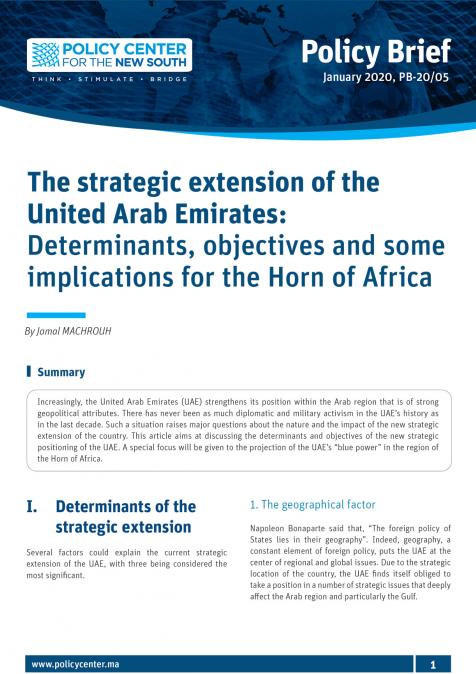Publications /
Policy Brief
Increasingly, the United Arab Emirates (UAE) strengthens its position within the Arab region that is of strong geopolitical attributes. There has never been as much diplomatic and military activism in the UAE’s history as in the last decade. Such a situation raises major questions about the nature and the impact of the new strategic extension of the country. This article aims at discussing the determinants and objectives of the new strategic positioning of the UAE. A special focus will be given to the projection of the UAE’s “blue power” in the region of the Horn of Africa.
Several factors could explain the current strategic extension of the UAE, with three being considered the most significant.
Napoleon Bonaparte said that, “The foreign policy of States lies in their geography”. Indeed, geography, a constant element of foreign policy, puts the UAE at the center of regional and global issues. Due to the strategic location of the country, the UAE finds itself obliged to take a position in a number of strategic issues that deeply affect the Arab region and particularly the Gulf.



